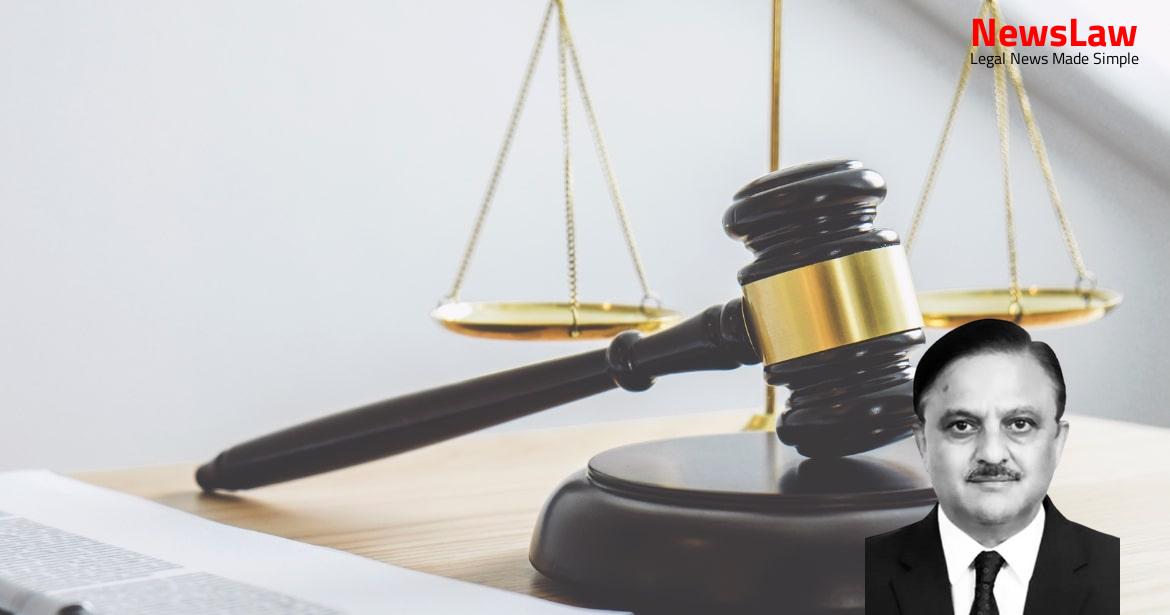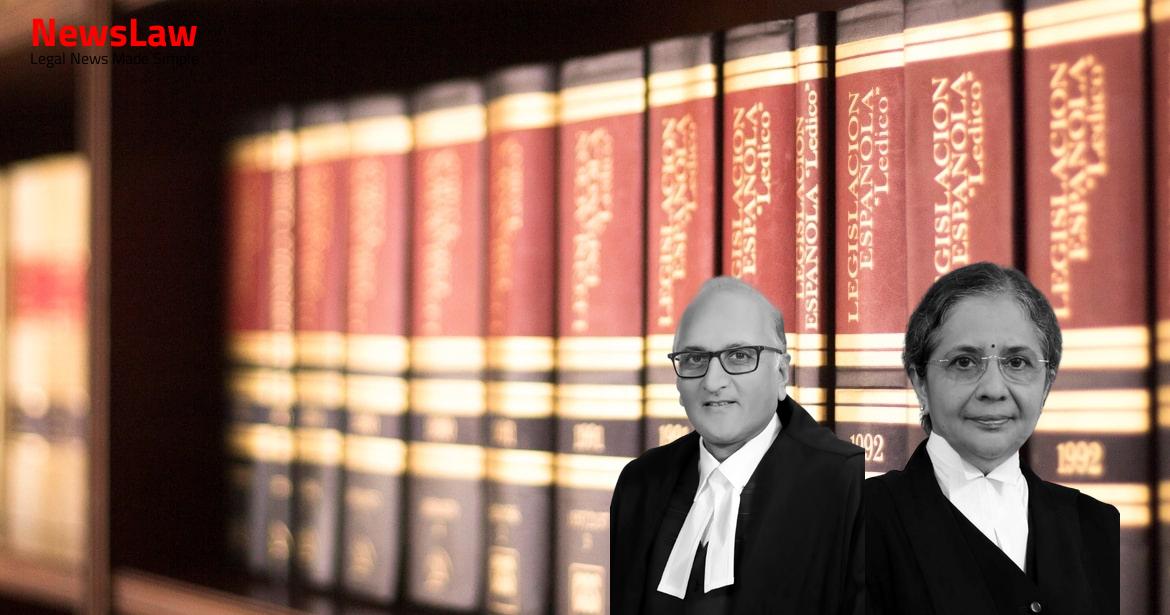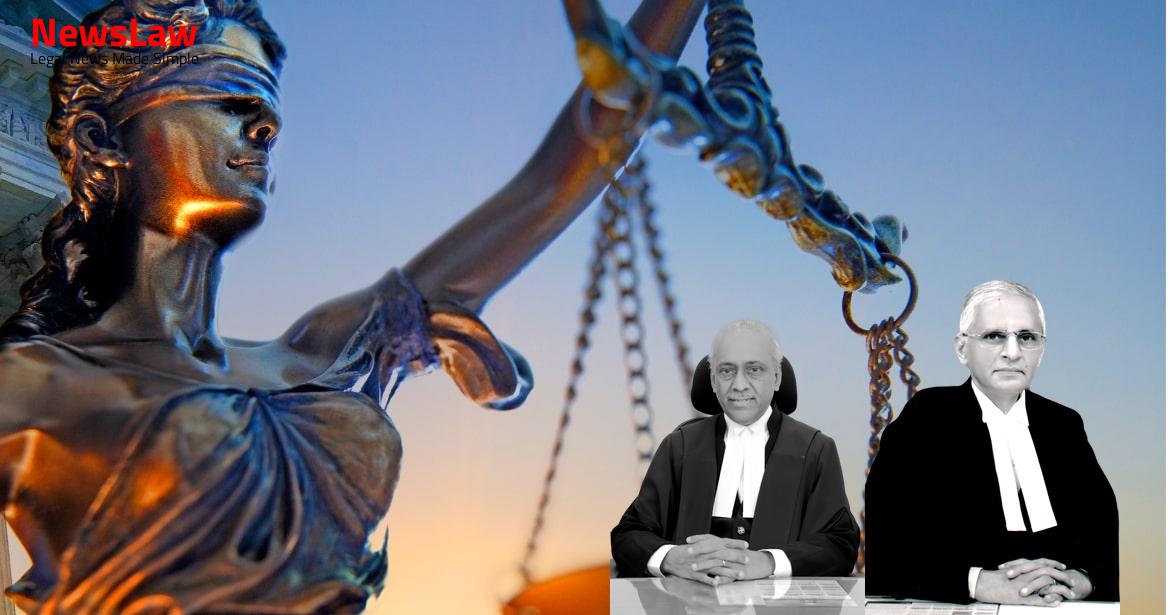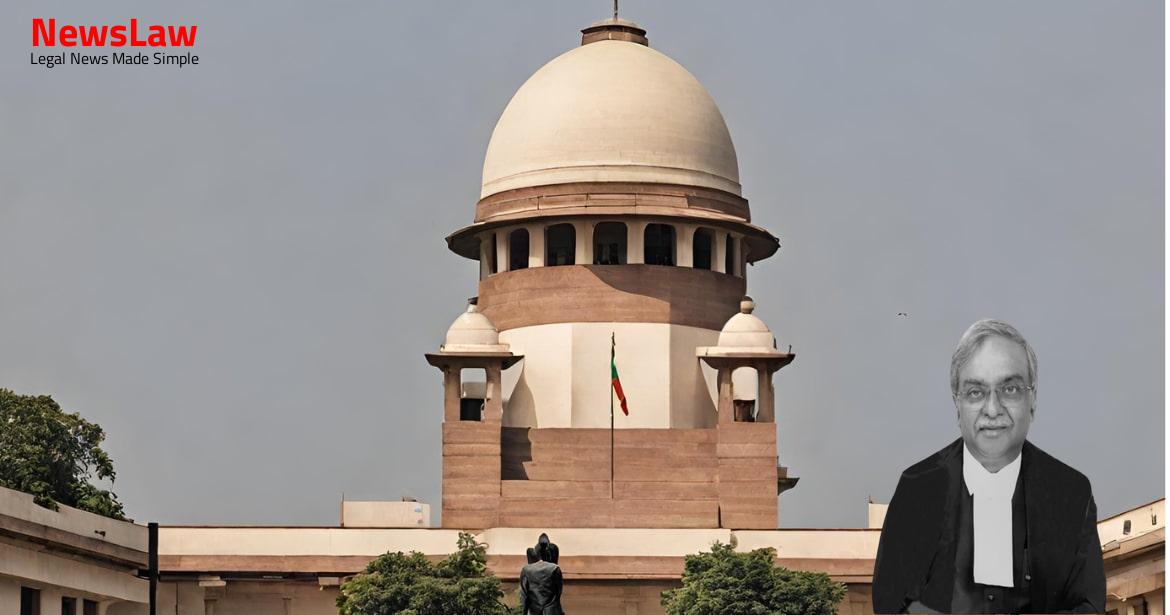In the legal case of Appellant vs. Respondent, a significant ruling on interim compensation discretion under Section 143A of the N.I. Act has been made. The respondent had filed a complaint against the appellant for non-payment of dues, leading to a series of legal actions. The Court’s decision on the nature of Section 143A is crucial for future cases involving similar issues. Stay tuned for more updates.
Facts
- An agreement was made in August 2012 to pay 50% of the profit to the respondent.
- The first cheque of Rs. 2,20,00,000/- was dishonoured, leading to a complaint under Section 138 of the N.I. Act.
- An appointment letter for the post of Executive Director was issued by the appellant in September 2011.
- In July 2018, the appellant agreed to pay Rs. 4,25,00,000/- to the respondent during a meeting at Ranchi.
- Legal notices were issued by the respondent due to non-payment of dues by the appellant.
- Partnership firms were formed with the respondent as an indirect partner, but alleged non-payment of profits by the appellant.
- An application under Section 143A of the N.I. Act was made by the respondent for compensation.
- A civil suit has been filed by the respondent in the Civil Court at Bokaro for recovery of Rs. 4,38,80,000/-.
- The challenged orders in the criminal appeal relate to the directions sought by the respondent.
- The Trial Court passed an order on 7th March 2020 directing the appellant to pay an interim compensation of Rs. 10,00,000 to the respondent within 60 days.
- The High Court dismissed the petition challenging this order.
- The Sessions Court upheld the decision of the Trial Court in a revision application.
- The orders passed by the Trial Court, High Court, and Sessions Court were challenged before the High Court.
Also Read: Freedom of Speech and Expression in Criticism of Government Actions
Issue
- The issue in this criminal appeal is whether sub-section (1) of Section 143A of the N.I. Act, which allows for interim compensation, is directory or mandatory.
- If deemed directory, the factors to consider when exercising powers under this provision need to be determined.
- The main question is on the nature of sub-section (1) of Section 143A of the Negotiable Instruments Act, 1881.
Also Read: Quashing of Complaint for Alleged Offenses in the Discharge of Official Duties
Arguments
- The Court must apply its mind to the facts of the case before passing the drastic order of deposit.
- The provision of Section 143A of the N.I. Act is discretionary as it uses the word ‘may’ in sub-section (1).
- The learned counsel for the appellant emphasized the discretionary nature of the provision.
- The existence of a prima facie case is essential for exercising the power under Section 143A.
- Prima facie consideration of the merits of the complainant’s case and defence of the accused is necessary before concluding if a case is made for interim compensation.
- The question of rebutting the presumption arises only after evidence is adduced.
- The defence of the accused at the stage of considering an application under Section 143A(1) is deemed irrelevant.
- An order of interim compensation must be issued in every case unless it is deemed that Section 143A(1) is not mandatory.
- The presumption under Section 139 of the N.I. Act is that the holder of a cheque received it for the discharge of debt unless proven otherwise.
- The very object of Section 138 of the N.I. Act supports the mandatory nature of Section 143A(1).
Also Read: Legal Analysis: Conviction Quashed in Kidnapping Case
Analysis
- The power under subsection (1) of Section 143A is discretionary and can be exercised before the accused is held guilty.
- The word ‘may’ used in Section 143A cannot be construed as ‘shall’ as it penalizes the accused even before their guilt is established.
- The provision must be held as directory and not mandatory.
- The Court must consider various factors such as the nature of the transaction, relationship between the accused and the complainant, and the financial capacity of the accused while deciding on interim compensation.
- The Court may refuse to grant interim compensation if the defence of the accused is found to be prima facie plausible.
- If a sentence of imprisonment exceeding one year or other reasons make it undesirable to try the case summarily, it shall be tried as per the CrPC.
- The Court must record brief reasons indicating consideration of all relevant factors while deciding on Section 143A applications.
- The power under Section 143A is to direct the accused to pay interim compensation, which, if acquitted, may be refunded to the accused.
- Non-payment of interim compensation fixed under Section 143A has drastic consequences and can result in the sale of the accused’s property to recover the amount.
- The word ‘may’ in Section 143A cannot be interpreted as ‘shall’ to ensure fairness and justice.
- Section 148 of the Cr.PC allows the Appellate Court to order payment pending appeal against conviction under section 138.
- The drawer appealing against conviction may be directed to deposit a minimum of twenty per cent of the fine or compensation awarded by the trial court.
- The amount specified in sub-section (1) of Section 148 must be deposited within sixty days from the order or within a further period of up to thirty days on sufficient cause being shown.
- Section 143A empowers the Court to direct the drawer of the cheque to pay interim compensation to the complainant.
- The interim compensation specified in Section 143A shall not exceed twenty per cent of the cheque amount.
- The interim compensation can be recovered as if it were a fine under Section 421 of the Cr.PC.
- The amount of fine or compensation imposed under Section 138 or 357 shall be reduced by the amount paid or recovered as interim compensation.
- The word ‘may’ in Section 143A and 148 is interpreted as discretionary, not mandatory.
- The power under sub-section (1) of Section 143A is discretionary.
- The word ‘may’ is also used in sub-section (1) of Section 148.
- In the case of Surinder Singh Deswal v. Virender Gandhi, the court emphasized that when the Appellate Court decides not to direct deposit by the accused, reasons must be recorded.
- The court in the case of Jamboo Bhandari v. Madhya Pradesh State Industrial Development Corporation Limited & Ors. held that the word ‘may’ used in Section 148 should generally be interpreted as ‘rule’ or ‘shall.’
- The High Court did not apply its mind before issuing a direction to pay the amount of Rs. 10,00,000
- In the peculiar facts of the case, there may be several other relevant factors that were not considered
- The sum of Rs. 10,00,000, while being less than 5% of the cheque amount, was ordered to be paid without proper consideration of all factors
Decision
- The learned Judge will hear and decide the application for the grant of interim compensation afresh.
- The impugned orders are set aside.
- The application made by the complainant in Complaint Petition No 1103/2018 under Section 143A (1) of the N.I. Act is restored to the file of Judicial Magistrate First Class, Bokaro.
- The Trial Court is directed to consider the application for grant of interim compensation afresh.
- The amount of Rs. 10,00,000/- deposited by the appellant will continue to remain deposited with the Trial Court.
- The Appeal is partly allowed on the above terms.
- The amount deposited by the appellant of Rs. 10,00,000/- shall be invested in a fixed deposit till the disposal of the said application.
- The parameters stated are not exhaustive.
Case Title: RAKESH RANJAN SHRIVASTAVA Vs. THE STATE OF JHARKHAND (2024 INSC 205)
Case Number: Crl.A. No.-000741-000741 / 2024



